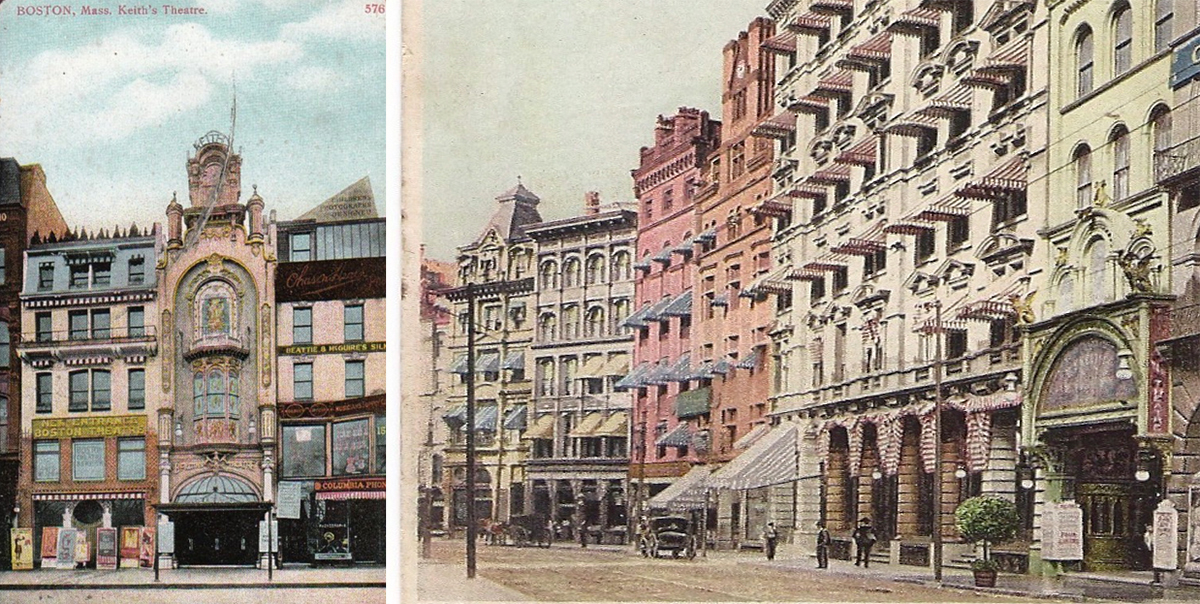Throwback Thursday: Vaudeville Was Born in Boston

B.F. Keith’s Theatre photos via Wikimedia/Creative Commons
Boston is the birthplace of a long list of things beloved by Americans. Public transportation, public parks, and Dunkin’ Donuts originated here, but one thing it isn’t often honored for is its importance in the creation of vaudeville.
On February 28, 1883, the country’s first vaudeville theater opened in Boston.
Vaudeville was born in the city thanks to a man from New Hampshire named Benjamin Franklin Keith. Keith joined the world of show business in his early days as a touring carnival barker, and later worked in the dime museums of New York City. Eventually, he moved to Boston to open his own dime museum called the Gaiety Museum. For ten cents, visitors could peruse exhibited oddities and curiosities like captured mermaids and a “tattooed man.”
Vaudeville’s roots stem from the upstairs portion of this museum. Keith opened a second floor theater at the Gaiety where he presented a series of singers, dancers, novelties, and animal acts. These acts proved to be his first venture into vaudeville, and in turn, Keith helped create a new form of mass culture entertainment.
Keith found success in this endeavor because of his specific approach to entertainment in Boston. His vaudeville performances were family-oriented. They fell in the middle of two extremes: lowbrow entertainment (like burlesques and lewd variety shows) and high culture (the symphony, the opera, and ballet.)
“What (Keith) actually did was adapt a model that started with variety theater with multiple acts and shows running continuously all day long. But Keith’s big innovation for Boston—a lot of it was because of Boston sensibilities—was to cash in on the family market,” explains cultural anthropologist Cynthia Miller.
“He aimed for clean entertainment so that they could target families and upper class couples as audiences, because at that point, all of those sort of educated and high class families really didn’t have a lot of entertainment that was outside of high culture,” she says.
Miller, a professor at Emerson College, has been teaching about the culture of burlesque for eight years. She notes Boston was known for its clean entertainment.
“It was very strict,” she says. “Boston was considered to be the strictest of any city in the country in terms of what they permitted in entertainment.”
It was so strict, in fact, that players in show business coined the term “Boston Version,” which referred to the cleaned-up rendition of a routine.
In addition to new successes, there was money in clean entertainment. In 1885, Keith joined up with an old friend named E. F. Albee. As business partners, they leased the Bijou Theatre for more vaudeville performances. Keith and Albee took pride in their theaters’ moral standards, and took advantage of the prosperity of refined entertainment. In 1894, the two men decided to open their own theater, dubbing it B.F. Keith’s Theater. From there, they started a chain of lavish theaters in Boston, eventually expanding the chain throughout the United States.
By 1900, Keith’s vaudeville circuit became the most-well known in the country—with many thanks to Boston’s good, censorious Puritan roots. Happy birthday, vaudeville!


